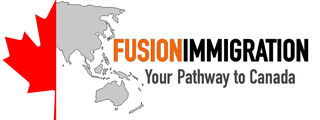Canada plans to bring in more than 1.2M immigrants from 2021-2023
On October 30, 2020, Canada announced its Immigration Levels Plan for 2021-2023 . Canada will aim to bring in more than 1.2 million immigrants over the next three years to compensate for the shortfall this year due to the pandemic and represent about one per cent of Canada’s population.
- 2021: 401,000 immigrants
- 2022: 411,000 immigrants
- 2023: 421,000 immigrants
The breakdown of next year’s plan includes:
- 232,000 immigrants in the economic class.
- 103,500 in the family class.
- 59,500 refugees and protected persons.
- 5,500 on humanitarian and compassionate grounds.
The Immigration Levels Plan aims to welcome about 60 per cent of all immigrants under economic class programs, including through Express Entry and the Provincial Nominee Program.
In 2019, Canada welcomed over 341,000 permanent residents, including 30,000 resettled refugees. Over 402,000 study permits and 404,000 temporary work permits were also issued.
Immigration will continue to be a key driver in advancing Canada’s economy, especially in the context of low birth rates and its vital role in growing the working age population, and it will remain so into the future. By the early 2030s, it is expected that Canada’s population growth will rely exclusively on immigration. It is also important to note that many source countries for Canada’s immigration system face similar demographic challenges related to aging populations and lower birth rates. As a result, Canada must be prepared to compete internationally for young, skilled and mobile workers.
COVID-19 has had a tremendous impact on Canada’s prosperity, including our economy. Despite these current challenges, immigration will continue to be a source of long-term economic growth in Canada. Immigration, Refugees and Citizenship Canada (IRCC) will continue to work with provinces and territories, and other partners and stakeholders, to ensure that its approach to immigration supports Canada’s ongoing prosperity.
Contacts Us
Recent News
- Canada to reduce work experience requirements for caregivers and provide pathways to permanent residence February 10, 2023
- Pearson’s English language proficiency test receives approval for Canadian Economic Immigration February 6, 2023
- Temporary public policy creating two pathways to permanent residence to facilitate the immigration of certain Hong Kong residents February 6, 2023
- Work and Immigrate to Canada as an Internationally Educated Nurse January 31, 2023
- Post Graduation Work Permit: What You Need to Know January 18, 2023
